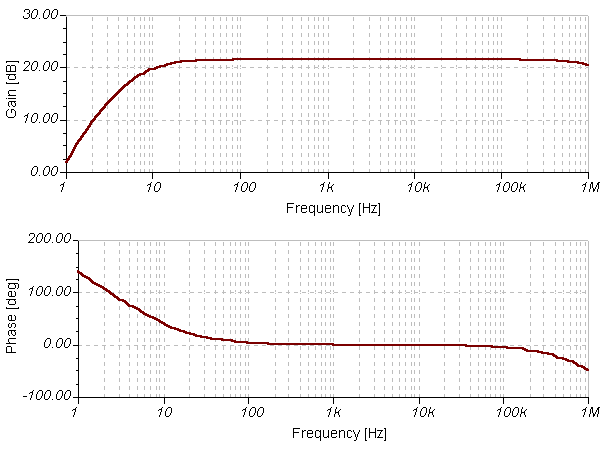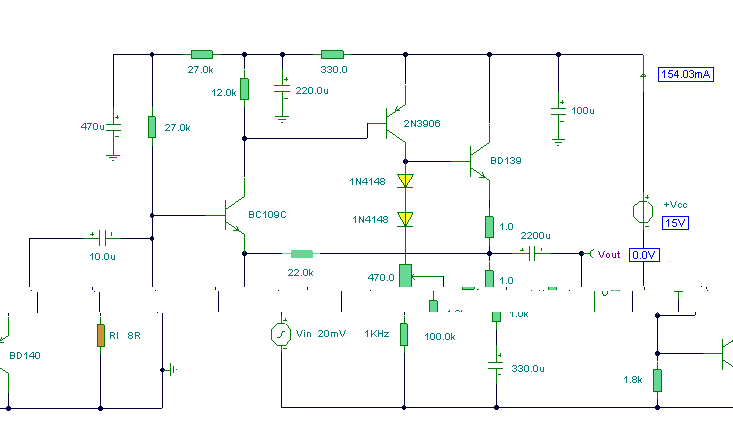2 Watt Audio Amplifier
Notes:
This was one of the earliest circuits that I ever designed and built, in Spring 1982. At that time I had only an analogue meter and a
calculator to work with. Although far from perfect, this amplifier does have a wide frequency response, low distortion, and is capable of
driving an 8 ohm speaker to output levels of around 5 watts with slightly higher distortion. Any power supply in the range 12 to 18 Volts DC
may be used.
Circuit Description
The amplifier operates in Class AB mode; the single 470R preset resistor controls the quiescent current flowing through the
BD139/140 complimentary output transistors. Adjustment here, is a trade-off between low distortion and low quiescent current. Typically,
under quiescent conditions, standby current may be 15 mA rising to 150 mA with a 50 mV input signal. A simulated frequency response is shown below:

The circuit is DC biased so that the emitters of the BD139 and BD140 are at approximately half supply voltage, to allow for a maximum
output voltage swing. All four transistors are direct coupled which ensures:-
(i) A good low frequency response
(ii) Temperature and bias change stability.
The BC109C and 2N3906 operate in common emitter. This alone will provide a very high open loop gain. The output BD139/140 pair operate in
emitter follower, meeting the requirements to drive low impedance speakers. Overall gain is provided by the ratio of the 22k and 1k resistor.
A heat sink on the BD139/140 pair is recommended but not essential, though the transistors will run "hot" to the touch.
Original March 1999
Last Revision 13-8-01 by
ANC

